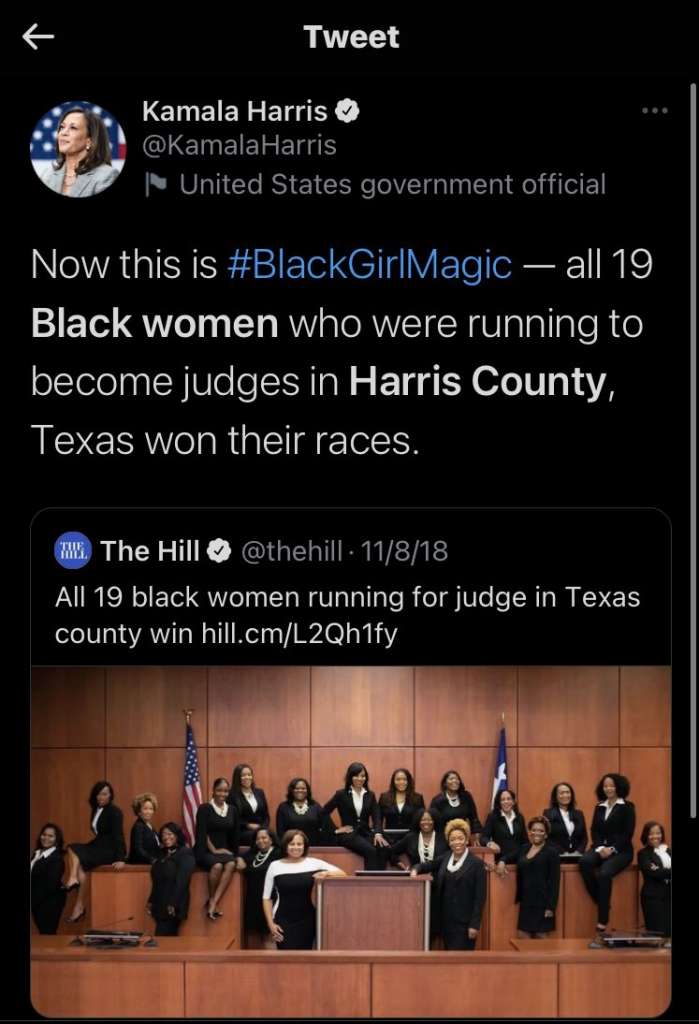Share This Article
Representation undoubtedly matters. To attain the progress we seek; people whose voices have been silenced, like oppressed and marginalised groups; must have an equal say in the politics that impact their lives. People deserve to have a seat at the table where matters that concern them are discussed and, that is why representational politics is beneficial.
However, token representation and representation by those who do not bear the true intent of the group they represent or whose politics are generally harmful to marginalised groups set us back in our quest.
The question is, should we celebrate women in power simply because? Should we rally around women in positions of political authority even when their politics are harmful to women and other marginalised groups?We need to demand better from our female leaders and not placate ourselves with mere representation that does not serve our purpose but instead adds to our oppression.
Women can be just as inept and oppressive as men and in positions of political power, when their actions impact the lives of thousands or millions, it is not simply enough that their presence in their position is indicative of representation for women.The unfortunate truth is, people, even women, will advance the interests of their class over those of marginalised groups even when they are part of these groups. Women in positions of political power who do not actively serve their people or who make life harder for them do not deserve support as women and as feminists.
In 2018, 19 black women ran for judge in Harris County Texas and all 19 won their race. This feat was posited as progress; American Vice President, Kamala Harris, called it “#BlackGirlMagic” in a now deleted tweet.

Judge Ramona Franklin, one of the 19, detained 500 people because they were unable to afford money bail. Judge Hazel B. Jones; 377, Judge Nikita Harmon; 349 and the list goes on with black women actively contributing to oppression.
In 2020, The Commonwealth Fund reported that 90% of the people in American jails have not been convicted of a crime. Poor people remain incarcerated because they cannot afford bail. This system affects black people disproportionately further perpetuating structural racism and inequality in the criminal justice system.
The actions of these judges contribute to a failing system, but; slay! women in power, right? Gaslight, gatekeep, girl boss.
In Nigeria, Khadijah Okunnu-Lamidi declared her intent to run for president, a brave feat given the patriarchal nature of our society, however, her politics focuses on privatisation which will be detrimental to poor people. Nigeria is in dire need of a political overhaul that must include women whose politics will favour all women, not just the rich ones. We’re past the point of rallying around women simply because of their elevated status in whatever regard; aspirational feminism is dead.
There’s the argument that seeing female politicians as better for women may stem from a kind of sexism as “the idea that women are inherently gentle, compassionate, and selfless—attributes appropriate for their natural role as caregivers—can insidiously distort expectations of governments with female leaders.”Women are not saints and, in high stake positions, their actions are what matter. Women can be instruments of change and advancement and can also further inequality and oppression. We must not settle for perfunctory or symbolic indications of progress, we deserve actual representation from people that serve us adequately.
Angela Merkel, Hillary Clinton, and Kamala Harris have all managed to advance their versions of female empowerment. Having women at the helm of affairs has been a wonderful thing, but more importantly, what matters is that leader’s platform. We need to ask ourselves the most crucial question: What does the candidate intend to do with the power they’re seeking?Let’s start asking them which women will be empowered, and how, by the changes, they’re proposing.

